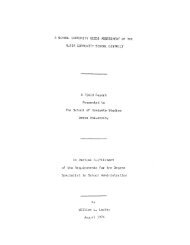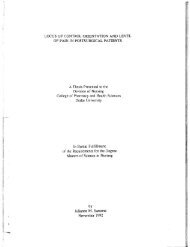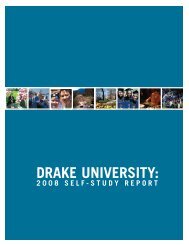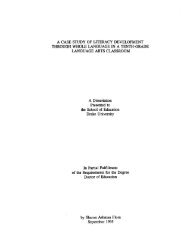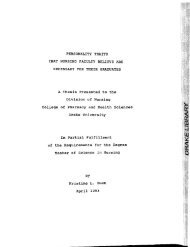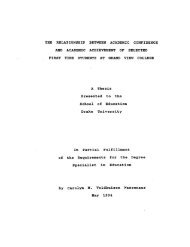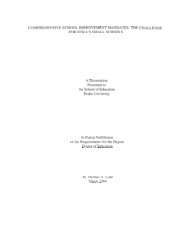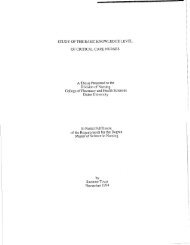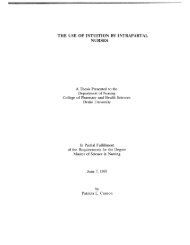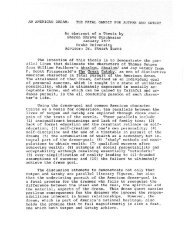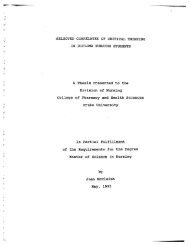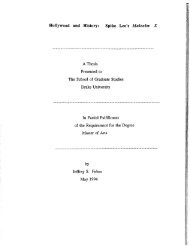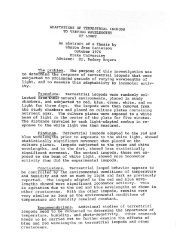LEADERSHIP CHARACTERISTICS OF ... - Drake University
LEADERSHIP CHARACTERISTICS OF ... - Drake University
LEADERSHIP CHARACTERISTICS OF ... - Drake University
You also want an ePaper? Increase the reach of your titles
YUMPU automatically turns print PDFs into web optimized ePapers that Google loves.
107<br />
Some CEOs chose not to ask any associates for their feedback. Others<br />
chose from one to six individuals to rate the CEO's leadership. The<br />
number of respondents at the various reporting levels (superior, peer,<br />
subordinate) was controlled by the CEO as was who they chose to<br />
participate in the study. As a result, the CEO may have avoided engaging<br />
others' participation for any number of reasons. In addition, the CEO<br />
could have engaged participants who where heavily supportive of the<br />
CEO, heavily critical of the CEO, or just the person who was most likely to<br />
complete the survey. The raters were not randomly selected and, as<br />
such, may have affected the results of the study. Therefore, while the<br />
results indicated raters see their CEOs as transformational and rater-<br />
leader scores highly correlate, results could have been compromised by<br />
the actual selection of the raters.<br />
Each CEO had an unequal number of respondents who might have<br />
been equally rated in some of the calculations. Efforts were made to<br />
address this discrepancy by performing a mean of means test for the MLQ<br />
whenever possible to get the average of each respective CEO score in<br />
addition to the average of all 290 scores combined. As a result of the<br />
unequal number of respondents, or lack of respondents in some cases,<br />
each CEO score might have contributed greater or lesser weight to the<br />
overall means.



